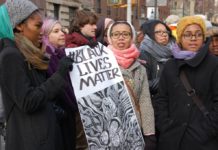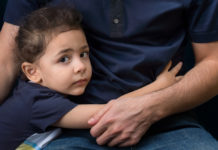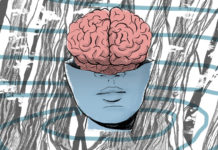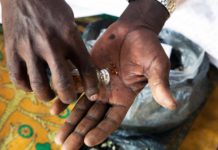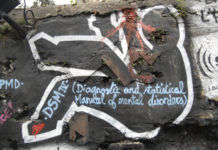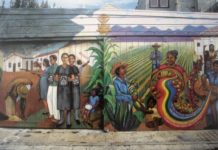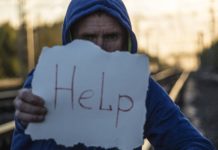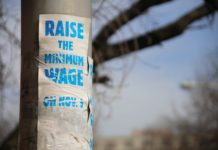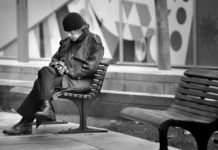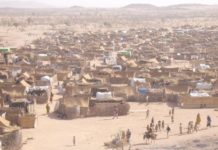Researchers Recommend Diagnosing Social Adversity Rather than Individual Disorders
Already-existing ICD codes provide a diagnostic alternative to biomedical models of health by contextualizing suffering within psychosocial conditions, yet these codes are underutilized.
Opening Doors in the Borderlands: An Interview with Liberation Psychologist Mary Watkins
MIA’s Micah Ingle interviews Mary Watkins about reorienting psychology toward liberation and social justice.
Psychology Needs New Concepts and Healing Models for Racial Trauma
Contemporary empirical research explores new ways to conceptualize and heal racial trauma through anticolonial and sociohistorical lenses.
How President Trump and Dr. Drew Got It Wrong on Deinstitutionalization
Compounding the lack of participation of former and current patients, a major theme of the summit was that Americans diagnosed with “serious mental illness” should not be able to make their own treatment decisions.
The Invisibles: Children in Foster Care
Millions of current and former foster children experience multiple kinds of trauma, as documented in a six-part investigative series published in the Kansas City Star this month. Too often invisible, these young people deserve our attention and our care.
Psychology and Poverty: An Interview with APA President Rosie Phillips Davis
MIA’s Gavin Crowell-Williamson interviews psychologist Rosie Phillips Davis about her presidential initiative to address deep poverty.
Correcting Misconceptions of Trauma-informed Care with Survivor Perspectives
Trauma-informed approaches have the potential to promote recovery but must involve survivors and service-users to prevent the experience of retraumatization within psychiatric and mental health services.
Integrating Indigenous Healing Practices and Psychotherapy for Global Mental Health
As the Global Mental Health Movement attempts to address cross-cultural mental health disparities, a new article encourages integrating traditional healing practices with psychotherapy.
Decontextualized Depression and PTSD Diagnoses Fail Indigenous Communities
A case analysis of an American Indian woman illustrates how the DSM diagnostic criteria misrepresent the lives of indigenous people.
To Live and (Almost) Die in L.A.: A Survivor’s Tale
After 25 years of chronic emergency, 22 mental hospitalizations, a stint at a “community mental health center,” 13 years in a "board & care," repeated withdrawals from addictions to legal drugs, and a 12-year marriage, I plan to live every last breath out as a survivor, an advocate, and an artist.
Study Finds Deteriorating Mental Health Among Poor White Americans
Researchers find evidence of low socio-economic status White Americans’ rising distress and declining well-being since the mid-1990s.
Hospitalized and Heading Toward Homelessness
Upon my release I was dumped at a motel with no ID, no money or method of payment, and not even a cell phone to call friends or family for help. My belongings were still locked in a safe back at the hospital. Where are the real advocates for more low-income housing, and where the hell have they been for those who are incarcerated, whether it be in jails and prisons or mental facilities?
Study Identifies Psychiatric Patients at Greatest Risk of Coercion
In an effort to reduce coercion, researchers isolate associated factors including age, relationship status, location, and diagnosis.
Prazosin Ineffective for Preventing Suicidal Thoughts — May Worsen Nightmares
A new study found that prazosin was associated with increased insomnia and nightmares, and did not reduce suicidal thoughts.
Psychology Must Become a Sanctuary Discipline to Heal Racial Trauma
Researchers explore pathways of healing racial trauma in Latinx immigrant communities.
Individuals with Psychosis Symptoms More Likely to be Victimized
Individuals diagnosed with a psychotic disorder are 4-6 times more likely than the general population to experience victimization.
More Research Needed on Climate Change-Related Ecological Grief
Researchers outline the concept of ecologically driven grief due to climate change and recommend future research to better understand the psychological impact of climate change.
Economic Deprivation and Social Fragmentation Drive Suicide Rates in US
Major study finds that economic deprivation and a lack of social capital are driving increasing rates of suicide in the U.S.
Green Space in Childhood May Protect Against Adult Mental Health Issues
A new study suggests proximity to green space as a child is linked to lower rates of mental health issues in adulthood.
Critical Psychologist On How Scientific Research Can Influence Public Policy
Critical participatory action research conducted on the higher education programs offered in prison leads to mobilized advocacy and shifts in public policy.
What is Loneliness And How Can it be Addressed?
As an increasing amount of research seeks to address the epidemic of loneliness, conceptual clarity is needed.
Higher Minimum Wage May Result in Fewer Suicide Deaths, Study Finds
New research suggests that minimum wage laws provide financial security that may help prevent suicide.
The Psychological Effects of the Zero-Tolerance Immigration Policy
Journal releases a compilation of articles detailing how zero-tolerance policy may impact mental health.
Community-Driven Healthcare for the Homeless Reduces Hospital Costs
Direct access to care in safe locations is key in reducing healthcare costs and increasing quality of life for homeless populations.
Psychologists Advise How to Help and Minimize Harm Working With Migrants and Refugees
While well intentioned, providers and volunteers can do more harm than good at the border. The Global Psychosocial Network issues guidelines on how to work for the benefit of migrants and refugees.



